Thousands Protest In Hong Kong Over China Security Law Proposal
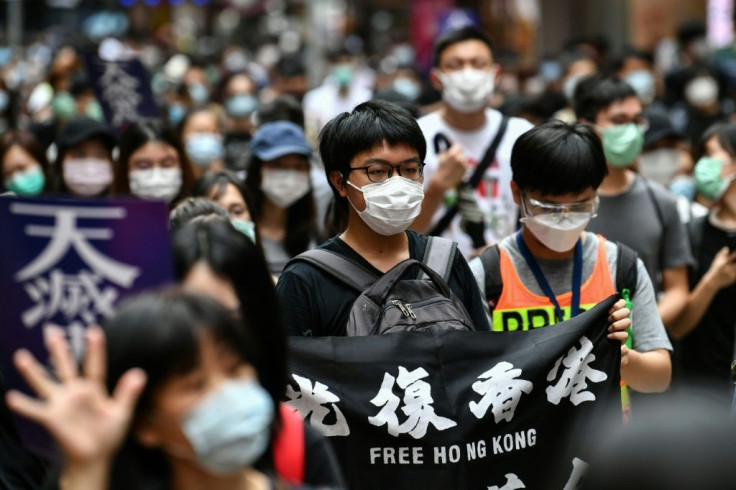
Police fired tear gas and water cannon at thousands of Hong Kong pro-democracy protesters who gathered Sunday against a controversial security law proposed by China, in the most intense clashes for months.
As the demonstrators and police were facing off in the semi-autonomous financial hub, Chinese Foreign Minister Wang Yi insisted in Beijing that the proposed law must be imposed "without the slightest delay".
The planned legislation -- expected to ban treason, subversion and sedition -- comes after Hong Kong was shaken last year by months of massive, often-violent protests, and repeated warnings from Beijing that it would not tolerate dissent.
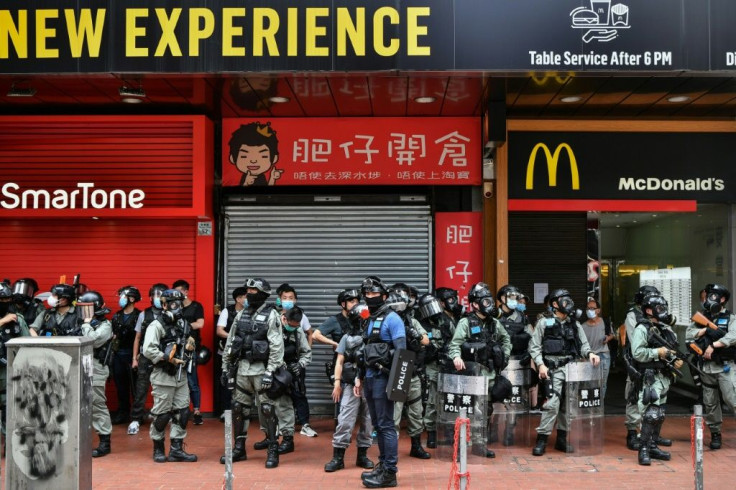
With campaigners warning the proposal could spell the end of the city's treasured freedoms, thousands gathered and chanted slogans in the busy Causeway Bay and Wan Chai districts, while some masked protesters set up makeshift barricades to stop police vehicles.
"People may be criminalised only for words they say or publish opposing the government," 25-year-old protester Vincent told AFP.
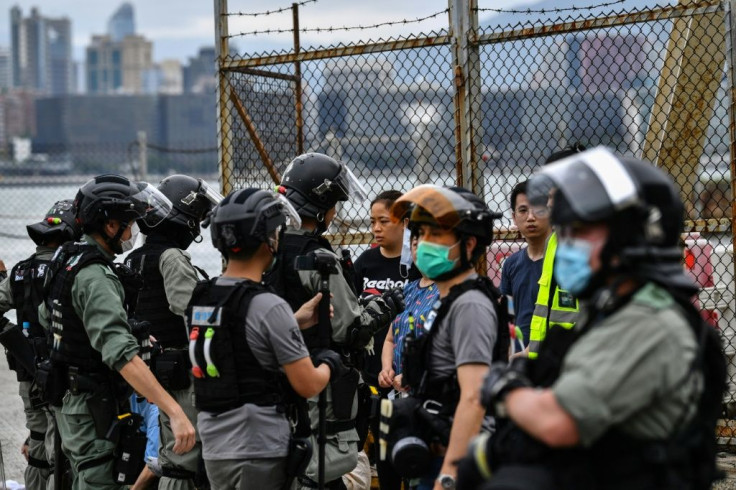
"I think Hong Kongers are very frustrated because we didn't expect this to come so fast and so rough. But... we won't be as naive as to believe that Beijing will simply sit back and do nothing. Things will only get worse here."
Riot police were deployed after protesters ignored earlier warnings from authorities against unauthorised assembly and violated the city's current coronavirus-linked law banning public gatherings of more than eight people.
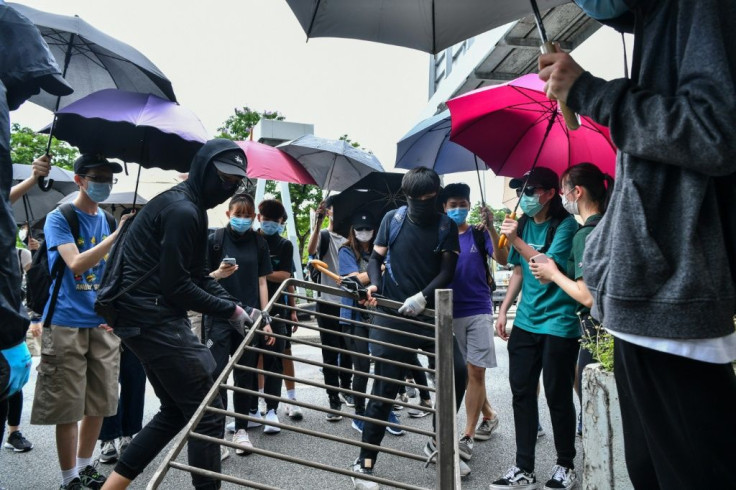
As the number of protesters swelled, police fired tear gas and pepper spray to try and disperse the crowd, and later deployed water cannon and armoured vehicles against pockets of protesters.
At least 180 people were arrested, police said, the majority in Causeway Bay and Wan Chai districts. Other protesters were detained at a smaller demonstration in Tsim Sha Tsui.
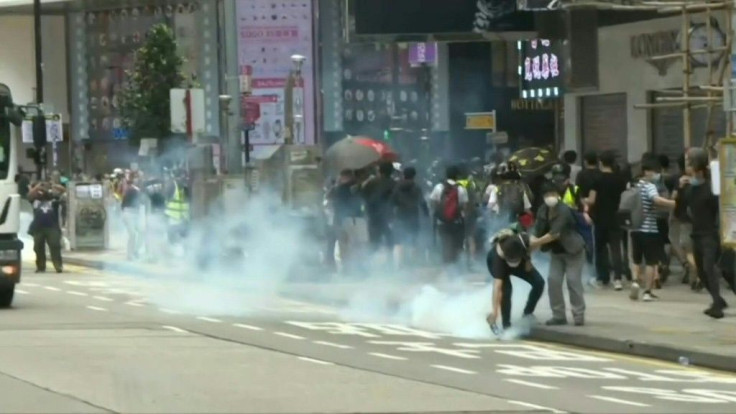
The Hong Kong government condemned the "extremely violent and illegal acts" of the protesters and said they reinforced "the need and urgency of the legislation on national security".
It also accused protesters of injuring at least four police officers.
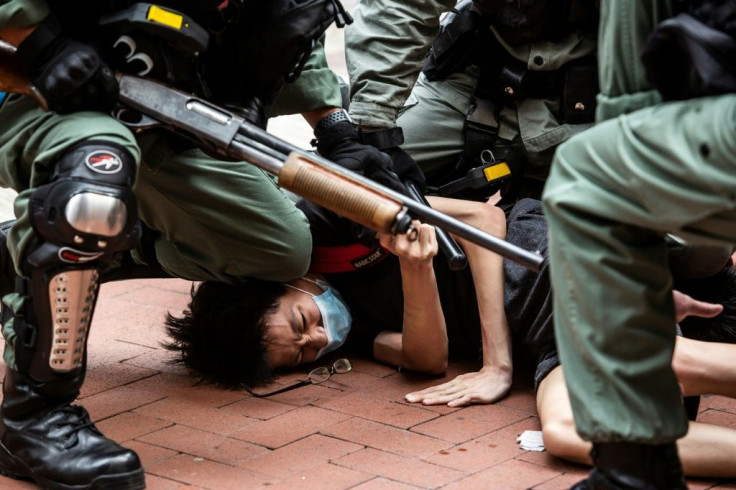
The scenes on Sunday were the most intense in months.
The Hong Kong pro-democracy movement had fizzled at the beginning of 2020 as arrests mounted and, later, large gatherings were banned to stop the coronavirus.
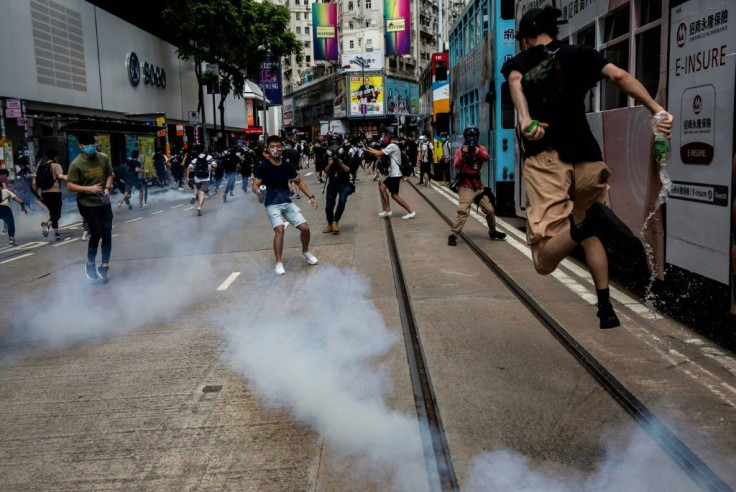
More than 8,300 people have been arrested since the protests erupted last year. Around 200 were detained during small rallies at malls on Mother's Day earlier this month.
Hong Kong residents enjoy rights -- including freedom of speech -- unseen on the Chinese mainland, as well as its own legal system and trade status.
Fears had been growing for years that Beijing was chipping away at those freedoms and tightening its control on the city, and campaigners have described the new proposal as the most brazen move yet.
Of particular concern is a provision allowing Chinese security agents to operate in Hong Kong, and that they could launch a crackdown against those dissenting the mainland's communist rulers.
"I'm very scared, but I still have to come out," said protester Christy Chan, 23.
"Aside from being peaceful, rational and non-violent, I don't see many ways to send out our messages."
Despite the alarm in Hong Kong and in some Western capitals, Chinese and city officials have insisted the proposed law is needed to prevent unrest and protect national security.
A top pro-Beijing official claimed Saturday that mainland Chinese law enforcement would not operate in the city without "approval" from local authorities.
But there is deep mistrust of China's opaque legal system in Hong Kong and of how Beijing might use the proposed regulations in the city.
China's legislature is expected to rubber-stamp the draft resolution on Thursday, before the details are fleshed out at another meeting at a later date.
Officials have said the law would then be implemented locally.
© Copyright AFP {{Year}}. All rights reserved.





















